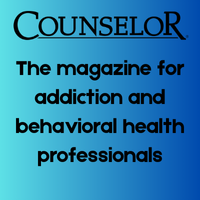Advocacy Alert: Changes to 42 CFR Part 2 Regulation Now in Effect
July 23, 2020
by CCAPP: see their announcement.
42 CFR Part 2 aims to encourage people to seek treatment without fear of legal or social consequences. Improper sharing of a patient's addiction treatment information can lead to: negative perceptions and discrimination; criminal legal consequences, such as probation or jail time; and civil legal consequences, such as loss of child custody, employment or housing. However, limitations of 42 CFR Part 2 have created barriers to sharing vital health information, treating clients/patients with multiple diagnoses, and billing for services where multiple services are provided.
To address these issues and to modernize data sharing between health care entities, the CARES Act, recently passed by Congress, included the Protecting Jessica Grubb's Legacy Act, which makes substantial changes to the statute underlying the substance use disorder (SUD) treatment record confidentiality regulations at 42 CFR Part 2 as follows:
Initial Consent: Once prior, written consent from a patient is obtained, the content of a patient's SUD treatment record may be used or disclosed by a covered entity, business associate, or program subject to Part 2 for the purposes of treatment, payment, and health care operations permitted by the Health Insurance Portability and Accountability Act (HIPAA).
Redisclosure: Any information disclosed pursuant to the initial written consent may be redisclosed in accordance with HIPAA regulations.
Revocation of Consent: It is permissible for a patient's prior written consent to be given once for all such future uses or disclosures for purposes of treatment, payment, and health care operations, until such time as the patient revokes such consent in writing.
Disclosure of De-Identified Information to a Public Health Authority: Information may be shared with a public health authority as long as requirements for de-identification of protected health information are met as established under the HIPAA privacy regulation.
Go here to view SAMSHA's fact sheet on these important changes.
Questions? Concerns?
As always, we want your input.
A reminder that BHAP members get regular access to our advocate in Washington, DC. If you have any questions about BHAP's advocacy efforts, please contact us.

A national membership association that provides education and advocacy for those in the behavioral health and addiction treatment industries.
We are the leading and unifying voice of addiction-focused treatment programs.



